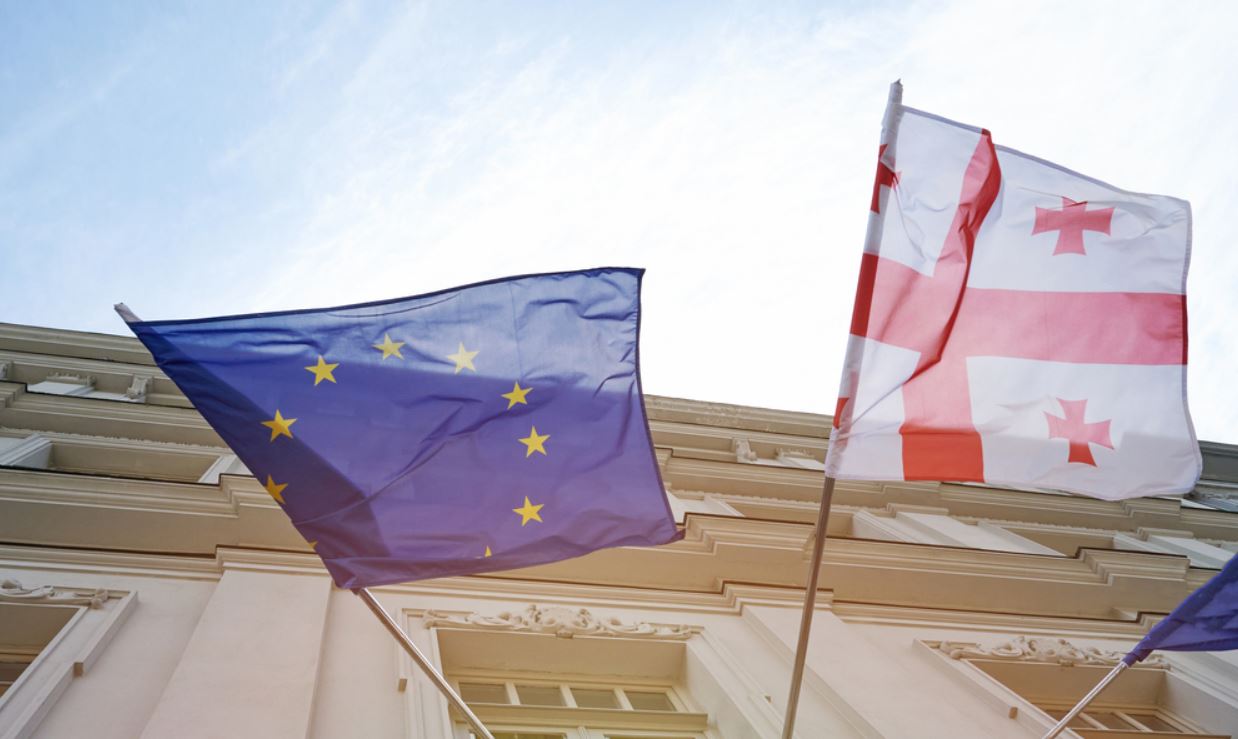The European Union's Strategic Test in Georgia

The political crisis brewing in Georgia is of an existential nature for the country. What is at stake is Georgia's future as a democratic and sovereign European nation (EU).

Georgia is at a critical crossroads. Georgian Dream (GD), the ruling party that has been in power since 2012, abruptly decided to derail the country from its European path soon after claiming victory in parliamentary elections that domestic and international observers have assessed as fraudulent and marred with irregularities. This decision triggered the ongoing massive protests in Georgia, marking the culmination of yearlong unrest provoked by a series of measures that the ruling party took with the aim of eroding democratic institutions and suppressing dissent. Georgia’s turn from pursuing an ever-closer partnership with – and eventual membership of – the European Union (EU) to self-inflicted alienation from Europe has been dramatic. Most surprisingly, this shift reached a new peak right after Georgia gained the status of candidate for EU accession that it had long sought.
The political crisis brewing in Georgia is of an existential nature for the country. What is at stake is Georgia’s future as a democratic and sovereign European nation. Besides, if consolidated, Georgia’s U-turn will undoubtedly affect the regional balance in the South Caucasus to the detriment of democratic and pro-European forces. Furthermore, an illiberal Georgia estranged from Europe and increasingly aligned with Russia would enable Moscow to reassert its influence in the South Caucasus – a region that is “integral to the Kremlin’s wider ambitions of dominating the Black Sea”.
The crisis that Georgia has been plunged into is also consequential for the EU, for its identity and for the declared goals guiding its foreign and security policy. It tests the EU and its political will and resolve to uphold security and the values it stands for on the continent. Ensuring that the enlargement process is not hijacked by the ruling party of a candidate country against the will of its people should be a strategic goal for the EU.
Teona Giuashvili is a David Davies of Llandinam Research Fellow in the Department of International Relations at the London School of Economics and Political Science, where she focuses on the geopolitics of Eastern Europe. She is a former Georgian diplomat with over eleven years of experience in multilateral diplomacy and conflict resolution, Georgia’s European integration and bilateral relations with France. Among other postings, she served as chargée d’affaires and deputy ambassador of Georgia to France. Teona holds a PhD in Political Science and a Master’s degree in European Studies from Sciences Po Paris, as well as Master’s degrees in International Relations from the University Panthéon-Assas Paris II and Tbilisi State University.

Available in:
Themes and regions
ISBN / ISSN
Share
Download the full analysis
This page contains only a summary of our work. If you would like to have access to all the information from our research on the subject, you can download the full version in PDF format.
The European Union's Strategic Test in Georgia
Related centers and programs
Discover our other research centers and programsFind out more
Discover all our analysesRussia, the Palestinians and Gaza: Adjustments after October 7th
The Soviet Union (USSR), and subsequently the Russian Federation as its internationally recognized legal successor, has consistently sought to play a visible role in efforts to resolve the Israeli-Palestinian conflict.
Deathonomics: The Social, Political, and Economic Costs of War in Russia
The report attempts to outline and examine a truly new phenomenon in Russian society, dubbed “deathonomics”—the making of a mercenary army against the backdrop of the Kremlin’s war in Ukraine, eventually replacing both the Soviet (conscript) and early new Russian (contract) armies. It notes that, by the end of 2023, this trend had turned the military service into one of the highest-paying professions in the country, something not seen in Russia on such a scale since the late 17th century.
Russia's Asia Strategy: Bolstering the Eagle's Eastern Wing
Among Russia’s strategic priorities, Asia traditionally played a secondary role compared to the West. In the mid-1990s, then Foreign Minister Yevgeny Primakov initiated a rapprochement with China and India. Then, in 2014, deteriorating relations between Russia and the West prompted Moscow to begin its “great pivot to the East”.
Kazakhstan After the Double Shock of 2022: Political, Economic and Military Consequences
The year 2022 represented a dual shock for Kazakhstan. In January, the country faced its most severe political crisis since independence, followed in February by Russia’s full-scale invasion of Ukraine, which cast uncertainty over the borders of post-Soviet states. These consecutive crises profoundly shaped Kazakhstan’s domestic and foreign policy.










